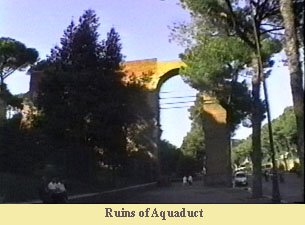|
|
|


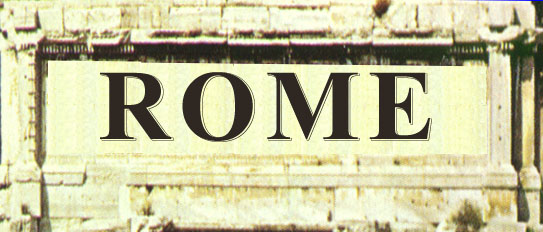
"The Empire that Conquered the World
and lasted for a millenium"
This is the text of a speech presented to several Toastmaster clubs and
other civic organizations. It describes the triumphal processional
given to honor a Roman general and his troops for a successful campaign.
The Roman Triumph
|
The Capitoline, the Palatine, the Aventine, the Esqualine, the Caelian,
the Viminal, the Quiranal: The seven hills of ancient Rome.
ROME! ...the empire that conquered the world and lasted for a millennium.
|
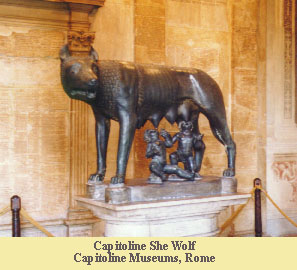
|
According to legend Rome was founded by Romulus, one of twin brothers,
sons of the war god Mars, who were raised by a she-wolf. In 753 B.C.,
using his plow, Romulus traced out the boundaries for a city wall on
the Capitoline hill and thus was born the eternal city of Rome.
On his deathbed Romulus declared to all: "Go proclaim to the Romans,
it is heaven's will that my Rome shall be the capital of the world."
The Romans took him at his word and over the centuries became a powerful,
conquering nation that controlled all of the known world.
Come with me now and let me paint for you a word-picture of those victorious,
conquering legions marching back into Rome after a successful battle in that
tumultuous victory processional known as...the Triumph.
|
It is a warm Spring day some time around the year 80 A.D. The emperor Titus reigns.
The Empire stretches to the far corners of the known world bringing with it the
Pax Romana, the Roman Peace, and offering Roman citizenship to many
of the conquered nations.
Rome itself is now home to over one million citizens not to mention the hoards of slaves.
Today the crowds line the streets waiting in restless anticipation for the first sound
and glimpses of the returning conquerers.
Here and there street vendors worm their way through the crowds hawking their wares
of special sweets and honey cakes prepared for this festive occasion. A parade
atmosphere pervades the entire city.
|
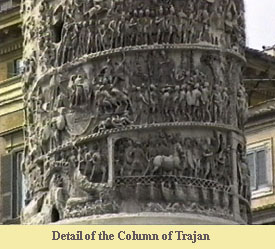
|
And then, far in the distance, down the highway...faintly, very faintly now you can hear
the fanfare of trumpets as the Triumph approaches. Closer, closer...now you can hear the
rhymical clop of marching feet and hooves as they strike the cobblestones of the Via Appia,
the Appian Way. At their approach the crowd breaks into a deafening roar of cheers as
first the standard bearers pass carrying high the banners of Rome and the conquering
general, and a great reclining statue of the god Jupiter, protector of Rome.
|
Then come wagons laden with the spoils of war, the riches of the vanquished foe.
Following the treasure wagons come the trumpeteers hailing their fanfare for the conquering
general. The captured soldiers and their generals, bound in chains and with a blank expression
of shock and hopelessness on their faces, plod before the conquering general who rides in a
golden chariot drawn by snow white horses.
|
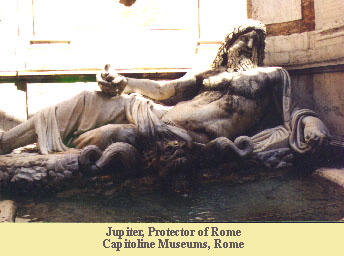
|
|
|
|
|
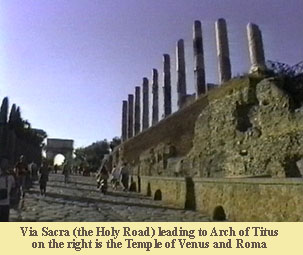
|
But, today the Colosseum is empty as all the hosts of Rome have turned out for the
Triumph, which now swings to the left, away from the Colosseum onto the Via Sacra,
the Holy Road, which leads into the heart of the city, the Roman Forum.
The Triumph marches past the multi-columned Temple of Venus and Roma...
Through the arch of Titus celebrating the emperor's victory over Judea...
|
Past the huge vaulted domes of the Basilica of Maxentius...
|
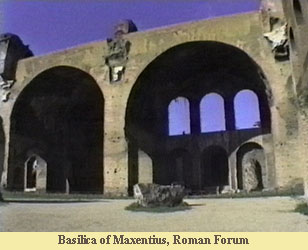 . .
|
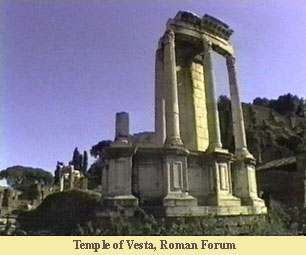
|
Past the house of the Vestals...
and nearby the Temple of Vesta, the most sacred place in Rome where the Vestal Virgins keep a
hearth fire burning constantly.
|
Past the Curia,
the Roman Senate House where the Apostle Paul was placed on trial...
|
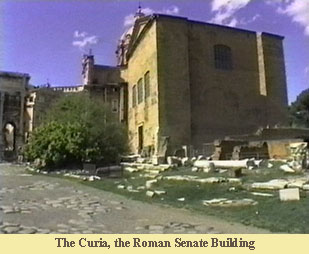 . .
|
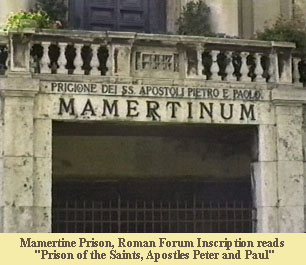
|
Past the entrance to the Mamertine prison where both Paul and Peter were imprisoned
|
...on and on the procession continues.
|
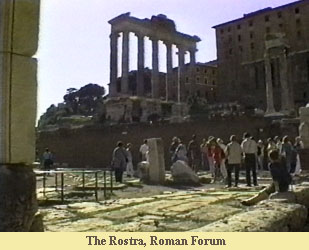
|
Finally, halting before the Rostra where every Roman citizen is afforded the right to stand
and speak freely, the conquering general steps down from the chariot and as the cheers of
the crowd reach a climaxing crescendo he mounts the steps to the Rostra where the emperor
stands waiting to receive him.
|
With a slight motion of his hand the emperor bids the general approach. Dropping to one knee
before his emperor the mighty general slaps his fist to his heart then outward, palm open in
salute...
"Ave Caesar, Ecce ego sum triumphons."
("Hail Caesar, behold I am the victor.")
|
 . .
|
Suddenly...all is quiet...the scene changes. As you rise and turn from the Rostra and gaze
out over the Forum, gone are the madly cheering crowds, gone is the triumphal processional,
gone are the magnificent marble edifices.
All that remains are a few stark, weather-worn columns rising alone amid scattered ruins
and rubble. We have returned to the present...and, as the gentle winds rustle through the
grass now overgrowing the steps and streets of the forum, the words seem to echo out of the
stillness and the quiet...
"Sic omnia gloria transit" ... "All glory is fleeting".
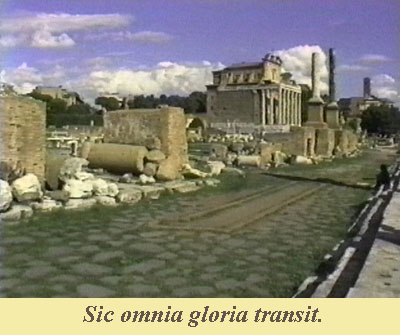
|






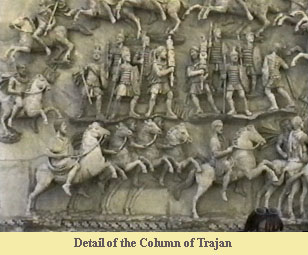
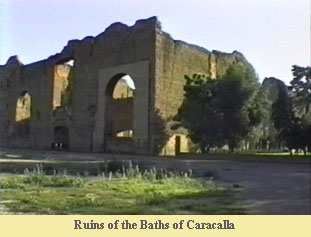
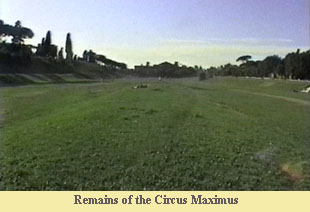
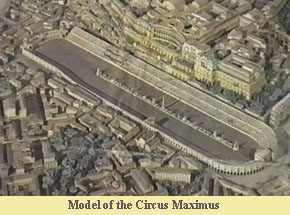
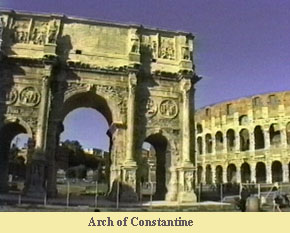
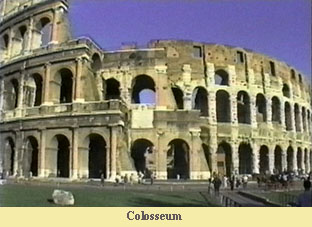
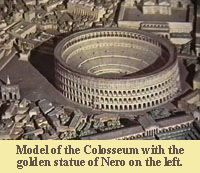 .
.

 .
.

 .
.


 .
.

